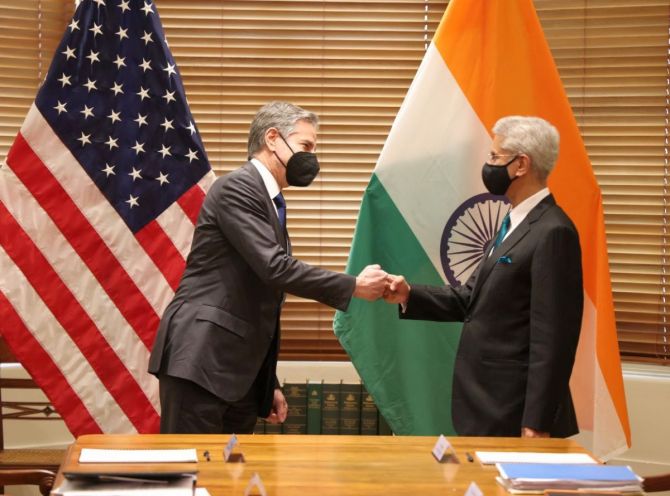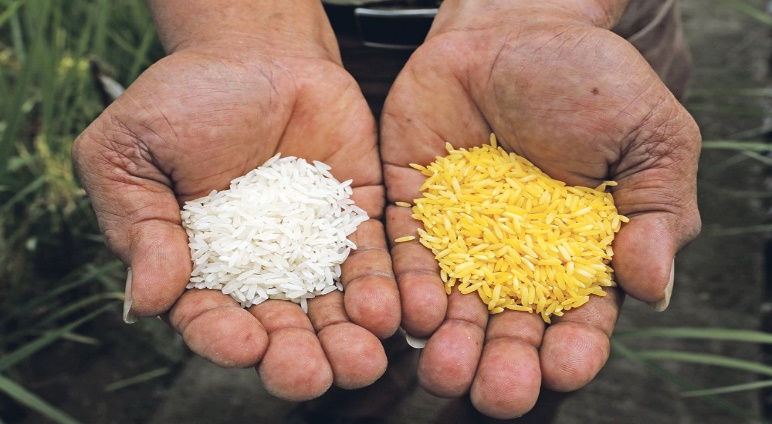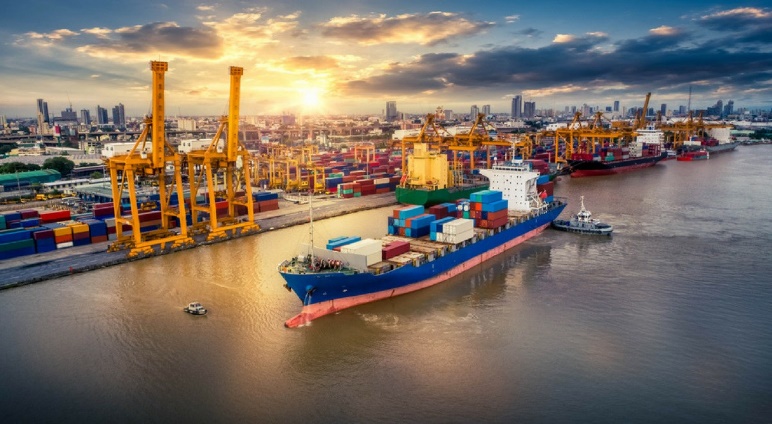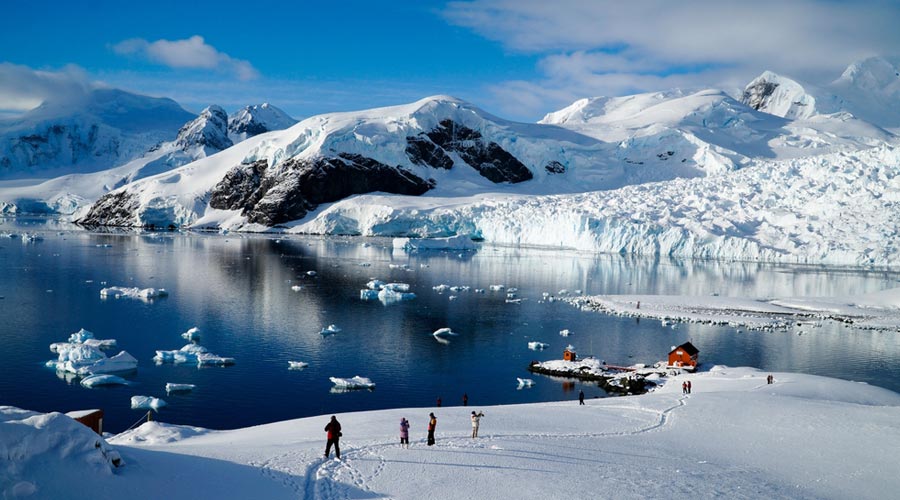AIR Discussions (July 3rd Week)
AIR SPOTLIGHT
CAATSA WAIVER FOR INDIA

Disclaimer: Copyright infringement not intended.
Context
- The US House of Representatives voted for a legislative amendment in favour of granting a waiver to India against the punitive Countering American Adversaries Through Sanctions Act (CAATSA) sanctions for its purchase of the S-400 missile defence system from Russia.
- The legislative amendment was authored and introduced by Indian-American Congressman Ro Khanna, who urged the US administration to provide India with a CAATSA waiver to help deter aggressors like China.
About CAATSA
- The CAATSA is a federal law of the US government through which they can impose sanctions on countries having significant transactions with Iran, North Korea and Russia.
- The law is been in force since 2017 which entails economic & financial penalties for any nation that transacts with Russia for arms and weapons.
- After Iran and North Korea, Russia came into the ambit of the law after it annexed Crimea in 2014 and its alleged meddling in the 2016 US presidential elections. Turkey is already under the CAATSA sanctions for its purchase of S-400 missiles from Russia.
About S-400
- The S-400 is considered one of the most advanced and potent air defence systems. The S-400 Triumph can counter almost all sorts of aerial attacks, including drones, missiles, rockets and even fighter jets.
- Russia has been deploying S-400 since 1993 and began testing in 1999-2000 and deployed in 2007.
- The system is equipped with four types of missiles: short-range up to 40 km; medium-range up to 120 km; long-range 48N6 up to 250 km, and very-long-range 40N6E up to 400 km.
- The missile system is capable of detecting aerial threats, calculating the trajectory of threats, and firing missiles to counter them.
- India has bought them to protect against attacks by missiles, or fighter jets from China or Pakistan and at present there is no alternative system capable of serving its long-range air defence requirements.
India signed US dollars 5 billion deal with Russia for the procurement of the S-400 air defence system in 2018 notwithstanding the warning from then US President Donald Trump that the deal with Russia may invite sanctions under the CAATSA. Whereas, India has all along maintained its decision on military procurement from Russia was and will continue to be guided by its national interest and requirement. Now, after almost four years the US House of Representatives has passed a legislative amendment providing wavier for India against CAATSA saying that India requires such a defence system to defend itself from countries like China.
What does this amendment signify?
- India has far long maintained that its foreign policy is based on its national interest. Even during the Russia-Ukraine, India continued its oil procurement from Russia amid criticism from its Western partners. India has already explained that India must have such a defence system given its hostile neighbourhood.
- The then US President Donald Trump signalled that India will attract sanctions under CAATSA but his Secretary of State for Defence encouraged India to go through the process of S-400 procurement.
- The election of a new US President, Talibanized Afghanistan and the Ukrainian crisis gave testimony to Indian Prime Minister Narendra Modi and his foreign policy that India took a calibrated position on Ukraine. Indian stance was clearly understood by the United States that India’s principal adversary is China which is aggressive and destructive to India’s interests.
- The CAATSA waiver by the US House of Representatives vindicates India’s position and also indicates that the US is concerned about the threats China poses to India. Therefore, with the given waiver, India would be able to defend itself in a hostile neighbourhood where the Chinese could take the advantage of the stalemate in the Ukraine conflict to try some new type of aggression.
- Also, the present US Defence Secretary in the Shangri-La Dialogue in Singapore raised concern about the strengthening of infrastructure on the Chinese side of the Line of Actual Control (LAC).
India has been facing multiple threats from China as well as from its western border i.e., Pakistan. The past events reflect that no matter who is threatening or warning India, it stands by its position and its national interest.
Does this reflect that India is in a strong position?
- India’s invitation to G7 and India is also going to take over the G20 presidency in 2023 itself reflects its strong position in geopolitics. India’s soft diplomacy has raised expectations from various stakeholders and looking towards it as a country acceptable to both sides of the Russian Federation and to Ukraine. The presidency of the G20 will play an important role to bring an end to the ongoing geopolitical conflict.
- As far as unilateral sanctions are concerned, India made it clear that it is an emerging country and naturally the interest of the Indian people will come first. For example, oil procurement from Russia.
- The waiver also reflects that India’s position is not just understood but also appreciated as India has not broken any law and will continue to always put the national interest first just like any other country.
- Other than that, the West also needs India to not just counter but also to keep a check on China in the Indo-Pacific region. The US with a keen interest in the region cannot intervene directly so will support India on this even in the future.
Is there any possibility that the present US administration will push ahead with the sanctions against India in future?
- The Biden administration has played an important role in encouraging the House of Representatives to vote and decide. While doing so the house underlined the kind of threat that India faces from China which is a perception that is fully shared at the highest levels of the US administration.
- Hence, at present there are no such possibilities where the US administration will push sanctions against India.
If we consider recent events, Russia has already delivered the first unit of the S-400 missile and has also begun the delivery of the second unit. India has continued its oil procurement from Russia and has also not condemned Russia’s invasion of Ukraine. Amid this, the US House of Representatives waived sanctions.
What is the strategic message this waiver has sent across the geopolitics?
- India’s position on the Ukraine conflict is much more muted now. As far as European Union (EU) and the US are concerned, the US was the first to adopt a much more flexible position on India’s posture in the conflict followed by the EU and United Kingdom (UK).
- But strategic signalling is very important, especially to China and Pakistan, that India is considered a very important strategic partner of the US and the West. The US being the world’s most powerful country with its huge military and economic might is standing squarely with India in facing the threats for a long time across the LAC.
- The waiver also sustained the delivery of S-400 and assurances that what India had ordered or purchased from Russia will be delivered.
So, does this waiver also signals that if India but any military hardware in the future from Russia will not invite sanctions?
- There are two points to be mentioned here:
- Firstly, this was not the blanket waiver, it was specifically for the S-400 air defence system.
- Secondly, the Russian Federation due to the ongoing Ukraine conflict are not in a position to give India the kind of spare parts that are needed for the existing equipment.
- Under such circumstances India has already started the process to diversify its defence purchase. India has started looking for other sellers like France, Israel, the US, etc. India aims to reduce its dependency on Russian weaponry, it has already reduced from 80% to 50%.
S-400 is known as Russia’s most advanced air defence system. By receiving all five batteries how significantly it will boost India’s defence system?
- As compared to India, China has far more advanced air bases and jets. The S-400 will ensure that there will be no aggressive air activity along the LAC.
- The S-400 are also suitable for fighter aircraft which India has bought from Russia. So, this will bolster India’s air defence and attack
With the deployment of the S-400 air defence system on Indian soil, the government has given a befitted reply to the Chinese in the case of aggression. The S-400 capability will also make China realise the futility of keeping forward deployments on Ladakh and Arunachal Pradesh along the LAC. Ensuring peace and tranquillity along the LAC is the only way out for both Asian giants. This defence system will ensure the principle of mutually assured destruction (MAD) and peace along the LAC.
https://newsonair.gov.in/Spotlight.aspx#
https://t.me/+hJqMV1O0se03Njk9
NEWS IN BRIEF: PRELIMS SPECIAL
Weapons of Mass Destruction Amendment Bill

Disclaimer: Copyright infringement not intended.
Context
- The External Affairs Minister Dr S. Jaishankar has moved the Weapons of Mass Destruction and their Delivery Systems (Prohibition of Unlawful Activities) Amendment Bill, 2022 in the Rajya Sabha.
About the Amendment Bill
- The bill seeks to amend the Weapons of Mass Destruction and their Delivery Systems (Prohibition of Unlawful Activities) Act, 2005. The Act prohibits unlawful activities such as manufacturing, transport, or transfer related to weapons of mass destruction and their means of delivery.
- The amendment bill bars the persons from financing any prohibited activity related to weapons of mass destruction and their delivery systems. It also prohibits persons from making finances or related services for the benefit of other persons about any activity which is prohibited.
About Weapons of Mass Destruction (WMD)
- There is no definite definition of WMD in international law. The expression is usually understood to cover nuclear, biological and chemical (NBC) weapons.
- These are the weapons with the capability to inflict death and destruction on a massive scale that their presence in the hands of a hostile power can be considered a grievous threat.
https://newsonair.gov.in/News?title=EAM-S-Jaishankar-moves-Weapons-of-Mass-Destruction-Amendment-Bill-in-Rajya-Sabha-today&id=444478
https://t.me/+hJqMV1O0se03Njk9
National Family Planning Programme

Disclaimer: Copyright infringement not intended.
Context
- The Minister of State for Health and Family Welfare Dr Bharati Praveen Pawar clarified that the government is not contemplating any legislative measures to control the population in the country.
- The Minister also said that the government will give top priority to the National Family Planning Programme to attain population stabilization by 2045.
About National Family Planning Programme
- This programme is the first national programme launched in 1952. Its objective was to stabilize the population at a consistent level by reducing the birth rate.
- The planning seeks to provide a choice and freedom to women in deciding their family size i.e., the number of children and determining the spacing of pregnancies.
- The government has also released the slogan “PLAN BANAO, ZIMMEDARI NIBHAO” to generate awareness about the basket of choices for contraceptive methods.
- The programme is also promoting reproduction health and reducing maternal, infant & child mortality and morbidity. By reducing unintended pregnancies, the programme is also trying to reduce the need for unsafe abortions.
https://newsonair.gov.in/News?title=Govt-accords-top-priority-to-National-Family-Planning-Programme-to-attain-Population-Stabilization-by-2045%3a-Govt-in-RS&id=444481
https://t.me/+hJqMV1O0se03Njk9
Rice Strain

Disclaimer: Copyright infringement not intended.
Context
- The Agriculture Minister Narendra Singh Tomar in Lok Sabha said that a drought-resistant and Genome-Edited rice strain will be available for field evaluation by Kharif 2024 and general cultivation by 2026.
About Genome-Editing
- The genome-editing is a process where scientists change the DNA of many organisms, including plants, bacteria, and animals.
- The change of DNA can lead to changes in physical traits like colour and disease risk.
- The first genome editing technology was developed in the late 1900s. Most recently, a new genome editing tool called CRISPR was invented in 2009, which made it easier to edit DNA.
- The CRISPR is much simpler, cheaper, faster and more accurate than older methods.
- Using this technology agricultural scientists can edit the genome to insert specific traits in the gene sequence.
Different from Genetically Modified Organisms (GMO)
- The GMO involves the introduction of foreign genetic material whereas Genome-Editing does not. In the case of agriculture, both the techniques aim to generate variants for better yield and more resistance to various stress.
- Gene editing is used to generate changes to the native genetic material. The GMOs introduce novel configurations of genetic materials typically derived from other organisms; gene editing methods modify existing genetic material in ways that can yield beneficial outcomes.
https://newsonair.gov.in/News?title=Drought-resistant-and-Genome-Edited-rice-strain-to-be-available-for-field-evaluation-by-Kharif-2024%2c-informs-Agriculture-Minister&id=444477
https://t.me/+hJqMV1O0se03Njk9
Jawaharlal Nehru Port

Disclaimer: Copyright infringement not intended.
Context
- The Ports, Shipping and Waterways Minister Sarbananda Sonowal announced that the Jawaharlal Nehru Port has become the first 100 per cent Landlord Major Port of India, as all berths are being operated on a public-private partnership (PPP) model.
- Landlord ports are the ports where the authority owns just the basic infrastructure, leasing it out to private operators, mostly on a long-term concession basis, while retaining all regulatory functions.
About Jawaharlal Nehru Port (JNPT)
- The port also known as Nhava Sheva port, is the largest container port in India. Situated in the East of Mumbai, Maharashtra.
- The JNPT is capable to handle the majority of India’s containerized trade and is also the focal point of long-haul calls to and from the emerging market economy.
- It is ranked 26th among the top 100 global ports as per the Lloyds List top 100 Ports 2021 Report.
- The port has connectivity by rail and road. Upon completion of the Dedicated Freight Corridor (DFC), the existing train capacity will increase from 27 to 100 trains a day.
- It has five container terminals, four are run by private entities and the fifth JNPT Container Terminal (JNPCT) is run by the port itself.
- The JNPT is also developing a satellite port at Vadhavana and four dry ports at Wardha, Jalna, Nashik and Sangli to boost industrialisation in Maharashtra.
https://newsonair.gov.in/News?title=Jawaharlal-Nehru-Port-becomes-first-100-per-cent-Landlord-Major-Port-of-India-having-all-berths-being-operated-on-PPP-model&id=444474
https://t.me/+hJqMV1O0se03Njk9
Indian Antarctic Bill, 2022

Disclaimer: Copyright infringement not intended.
Context
- The Indian Antarctic Bill, 2022 has been taken up for discussion in the Lok Sabha.
About Indian Antarctic Bill, 2022
- The bill was introduced in Lok Sabha in April 2022. It seeks to give effect to the Antarctic Treaty, the Convention on the Conservation of Antarctic Treaty Marine Living Resources, and the Protocol on Environment Protection to the Antarctic Treaty.
- The provisions of the bill will apply to a person, vessel or aircraft that is a part of an Indian expedition to Antarctica under a permit issued under the Bill.
- The central government will also establish a Committee on Antarctic Governance and Environmental Protection. This committee will be chaired by the Secretary of the Ministry of Earth Sciences.
- The committee will grant permits for activity, implement and ensure compliance with international laws for the protection of the Antarctic environment, obtain and review relevant pieces of information provided by the parties to the treaty and negotiate fees/charges with parties for activities in Antarctica.
- The bill prohibits activities like nuclear explosion or disposal of radioactive wastes, the introduction of non-sterile soil and discharge of garbage.
https://newsonair.gov.in/News?title=Indian-Antarctic-Bill%2c-2022-scheduled-to-be-taken-up-for-discussion-in-Lok-Sabha-today&id=444449
https://t.me/+hJqMV1O0se03Njk9



1.png)

